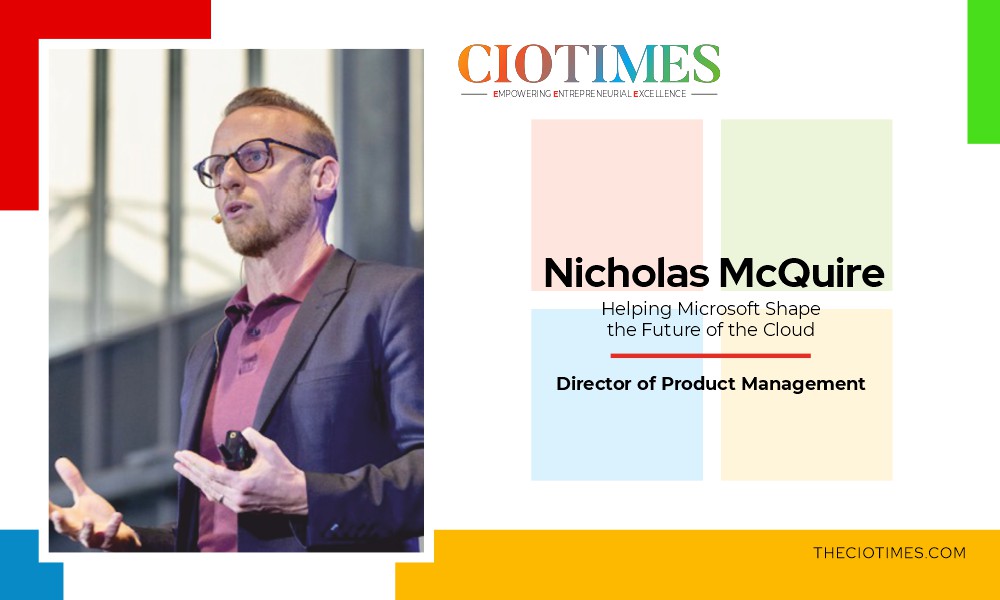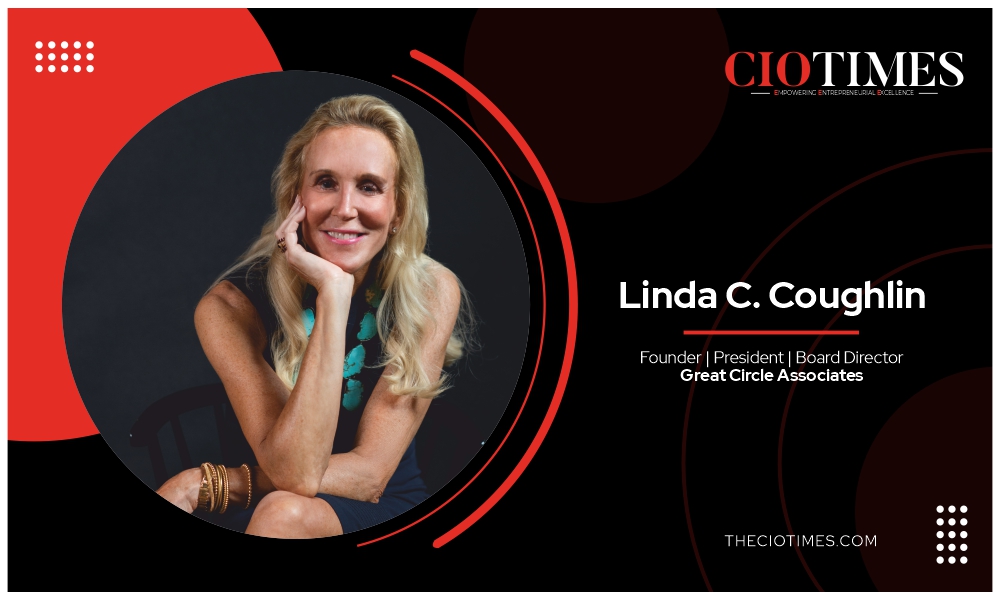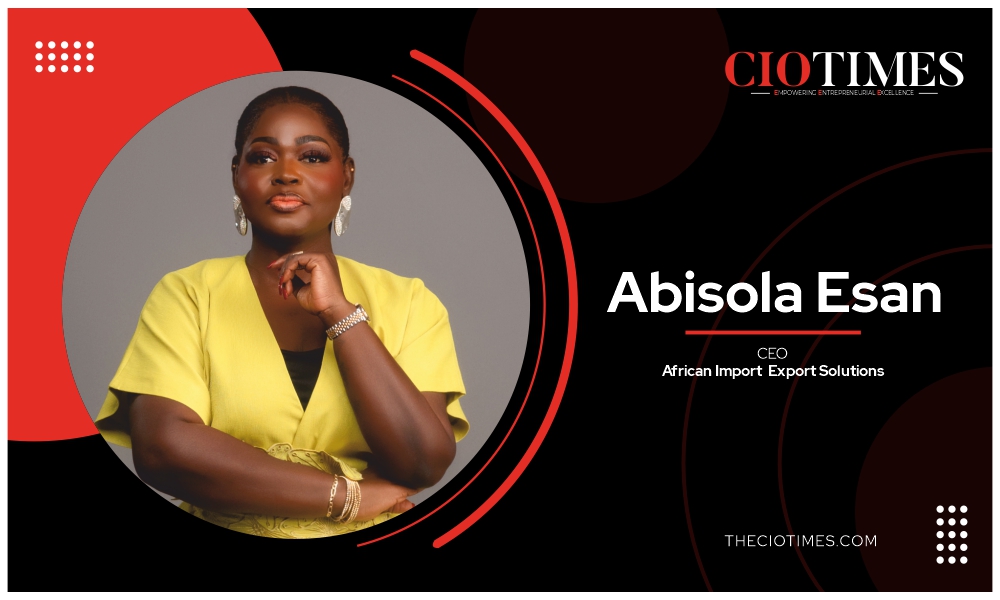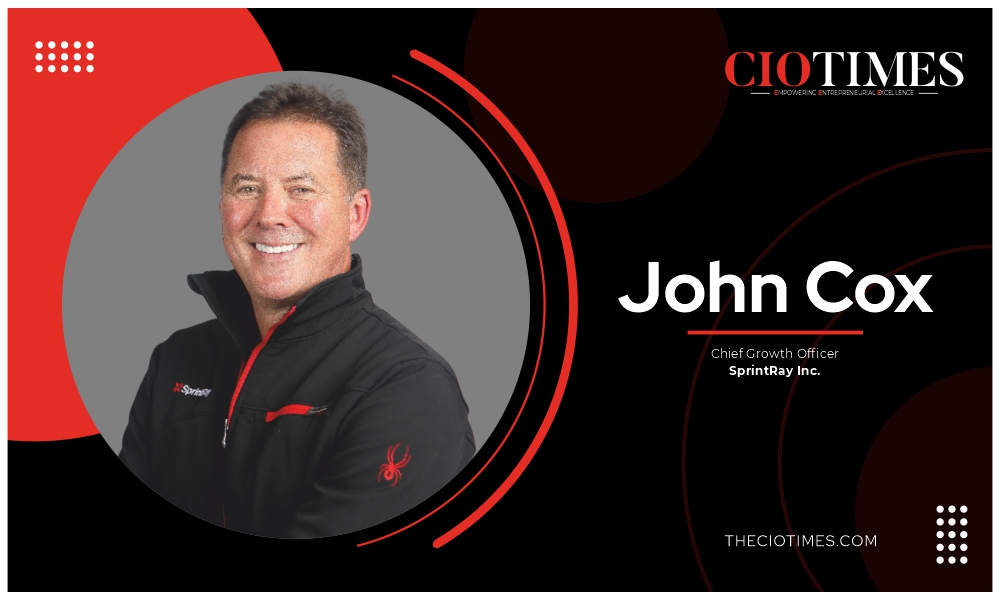Busy incubating the next generation of growth businesses
For Nick McQuire, Director of Product Management in Microsoft’s Strategic Missions and Technologies (SMT) division, the organisation’s business acceleration arm, the path to this point has not been a predictable one. But working in the area of future technology innovation and business acceleration never is. Microsoft’s SMT division sits at the nexus between its long-term foundational research in Microsoft Research on one hand and its current solution portfolio on the other and the teams within it work to incubate an array of technologies that will turn into the next generation of growth businesses for Microsoft. At the moment, this includes Microsoft’s telecoms and 5G capabilities, space-satellite technologies, quantum computing, and the work it does with the US federal government.
Within SMT, Nick works in the Growth Innovation and Strategy team under the division’s COO Mitra Azizirad focusing on product development for what he calls “horizon two” products and innovations (i.e. arriving in 2-3 years) along with the strategy, planning, and customer engagement effort in these areas.
“It may sound glamourous to some, but in reality across our teams, it’s tough work. There is no rule book or blueprint for growing future products and emerging categories. But is also is highly rewarding for all of the superb people working and collaborating across Microsoft in these areas. “The fact that we are busy incubating the next generation of growth businesses that ultimately will determine the future of the cloud, our industry and the planet is very exciting,” he says.
Innovation at the core
Nick also points out that innovation is at the core of what everyone does in Microsoft but the work being done in SMT, although focused a bit farther out from the products of today, is growing in demand with customers especially in the current climate. “What we are seeing is that innovation is taking on an even greater importance today, perhaps more so now, than ever before because what many businesses learned during the pandemic is that innovation is core to driving both growth and resiliency in periods of high disruption.”
Why this is becoming even more important today than ever before he adds, is that we are about to witness several major technology paradigm shifts in the coming years that businesses need to start to think about and plan for today. These are not only going to shape the future of connectivity, AI and computing but they will also open up new doors of opportunity and innovation for enterprises and governments all over the world.
Three core paradigm shifts shaping the future cloud
What are these major shifts coming ahead of us? McQuire states that they include “Modern Connected Apps”, which brings the future of connectivity and technologies like 5G and space together with the cloud to put compute power into increasingly hard-to-reach areas and enable a new paradigm for connected applications in the process; “AI CoReasoning”, which, thanks to today’s advancements in generative AI through services like ChatGPT, will enable a new co-reasoning paradigm to develop between humans and machines that will transform how we interact with technology in the future; and third, “Quantum at Scale” which will enable a new computing paradigm with greater intelligence, precision, speed and scale applied to computationalbased problem solving and open up new fields of scientific discovery in the future.
“These three key areas of future innovation are not only collectively shaping the cloud’s future but Microsoft’s future as well, and is the core focus of our work in Strategic Missions and Technologies. Ultimately, we want to help our customers plan and gain a foothold in these emerging areas today so they are prepared to gain an advantage to improve their growth and resiliency when this innovation becomes standard in the future,” shares Nick.
“Learn it all” mindset
Like many of his teammates within SMT, the road to this point hasn’t been smooth and there have been several challenges they have all had to meet along the way. Because of his prior experience in technology incubation and in particular with startups in his career, he has become part of a high performing team that consistently has to embrace large-scale change and reinvention.
“We have all experienced setbacks but what I didn’t know at the time when facing some of my biggest challenges, was that they all served as huge blessings and catalysts for me move onto my next stage. These types of experiences are important in our organisation because we have to become comfortable with change. In fact, we have an acronym for it” states McQuire: “VUCA: volatility, uncertainty, complexity, and ambiguity. Being comfortable with VUCA is about staying positive in a rapidly changing world and approaching everything with a growth and ‘learn it all’ mindset”.
He adds: “Our leader Mitra Azizirad has a mantra which she often shares with the team: “Get energized by the word “No.” She argues that the word is “not a closed door – it’s an opportunity to learn, grow and come back stronger. Failure and success have a lot in common. You must embrace one to capture the other.” This really resonates with me as to how you can overcome obstacles working in innovation on one hand but also in your career as well.”
The Partnership between OpenAI and Microsoft
Nick and his team spend plenty of time working with customers on future innovations and he has seen incredible interest on the work Microsoft is doing with OpenAI over the past months in the area of generative AI which builds on decades of Microsoft research in the area.
When asked about the future of AI, Nick points out how it will progress in a couple of areas. First, how humans and users of the technology will increasingly “co-reason” with AI and how this will change the way we interact with technology to solve problems. With the development of various co-pilot solutions across Microsoft products since January, it is clear we really are entering a new era for AI and period of “intelligence working” which is a big change from the information and knowledge-based working model we see today. The second area of progress McQuire points out is at the intersection of large language and multi-modal models and science. “We are seeing foundation models evolving from understanding the language of humans to understanding the language of nature, particularly in molecular and computational chemistry. This has the potential to open up new areas of scientific discovery such as in the discovery of new sustainable materials, fertilizers or in drug discovery for example. Exciting times are ahead in this area,” shares Nick.
How Microsoft is helping customer overcome innovation challenges
At the same time however, Microsoft recognizes that many businesses have to overcome some immediate challenges in order to deploy and gain value from applying emerging technologies like 5G, Space, quantum computing and others. McQuire points out that building trust in the technology through responsible, secure and safe development and approaches to innovation are critical. Additionally, so is education and helping customers learn about these future cloud innovations so that businesses can understand where to start, how to prioritize and focus on the right use cases that drive the best business outcomes. “This is the foundation of the work we are doing as a team.” McQuire adds. “As exciting as these areas are, our work isn’t about technology for technology’s sake”. It’s fundamentally about humans. Humans make it all happen. And it’s also about co-innovation where we partner and help our customers gain a foothold in these future cloud technologies”.
Words of wisdom
To the budding young entrepreneurs, here’s what Nick has to say: “Every organization has the capacity to foster this type of innovation so it’s important to start to learn and plan around how these future cloud technologies can benefit your business and they are great launch pads to kick start innovation projects. We would love to partner and co-innovate with you on these areas and have many tools and learnings from within Microsoft to help you get started with these technologies, whether 5G, space or quantum computing, so do reach out if interested.




